Insiders tell of confusion over the Government’s ‘Border Security Command’ and warn people smugglers will just adapt and carry on
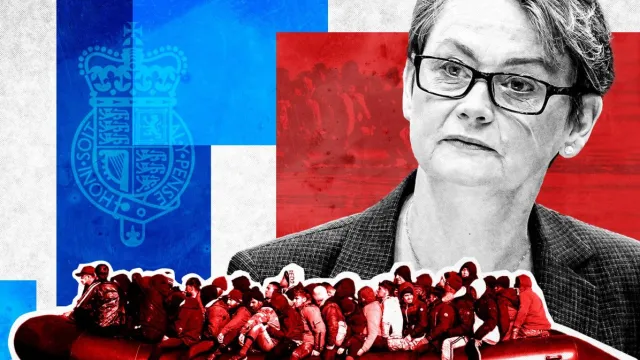
Labour says ‘smashing the gangs’ can ease the small boats crisis. But officials within Home Secretary Yvette Cooper’s department are sceptical
Home Office officials do not believe Labour’s plan to “smash the gangs” will work as a way of bringing down illegal migration to the UK, i can reveal.
They say that civil servants in the department have been “underwhelmed” by the approach that was being outlined again this week by Sir Keir Starmer and Home Secretary Yvette Cooper.
The insiders say “nobody” understands how the much-vaunted Border Security Command – that the Government says will take the lead on combating people smugglers running small boats – will operate.
i has been told that there is “cynicism” within the department about whether the command will be any more successful than previous units operated under the Conservatives.
PM wants smugglers ‘treated like terrorists’
The officials’ fears were expressed after the Prime Minister used his speech at an international policing conference to highlight the drive to “smash the people smuggling gangs”.
Starmer told Interpol’s general assembly in Glasgow on Monday that new laws being brought forward by Labour would see smugglers “treated like terrorists”, with enhanced powers to gather intelligence and seize the evidence needed to disrupt international networks.
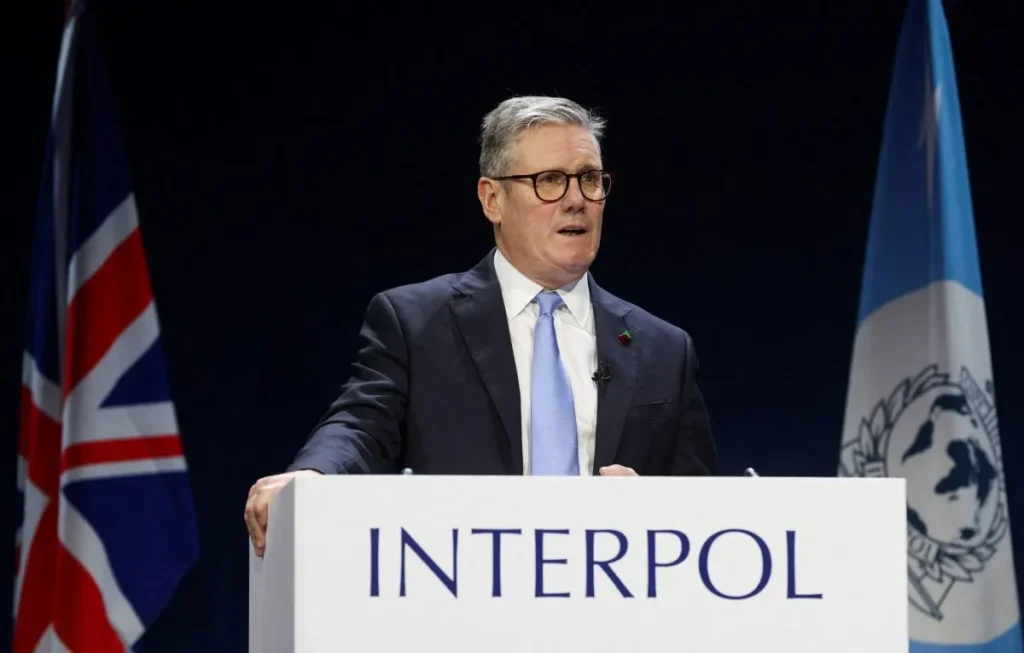
The PM went on to explain to journalists that the “the difference that counterterrorism powers make are the ability to get ahead of the criminal gang” compared to traditional methods where “you’ve got to wait until something happens”.
“With counterterrorism powers you can get in with the intelligence beforehand, the preparatory acts, in a much more meaningful way and get into some of the information that they are holding,” he said, adding: “There are other powers that can then be put in place which don’t necessarily require a conviction where you can restrict the activities of individuals.”
But with an estimated 2,000 people currently waiting to board dinghies in northern France and Channel crossings up 19 per cent year on year, sceptical officials, charities and experts warn that demand for the gangs’ services is not slowing.
Dr Peter Walsh, from the University of Oxford’s Migration Observatory, warned that there was also a “lack of evidence” on the long-term effects of prosecuting more people smugglers, telling i that previous enforcement efforts had only displaced the problem.
On Thursday, the Prime Minister announced new agreements with Serbia, North Macedonia and Kosovo – which sit on a major irregular migration route into the EU – aiming to combat organised immigration crime by increasing intelligence sharing and cooperation.
‘Gangs will circumvent “get tough” policies’
But one Home Office official said of the Government’s plans: “It will not bring the crossings down – the smugglers will adapt and circumvent anything they put in place.
“The only way to cut illegal migration is a combination of safe and legal routes and a change in foreign policy.”
Another Home Office source told i: “It’s fine for us to talk about targeting smugglers in the UK but there are a lot of people in Europe who have to get involved.
“There are clearly political reasons about why they want to look tough on all this, but what is the impact actually going to be on the number of people arriving in the UK?”
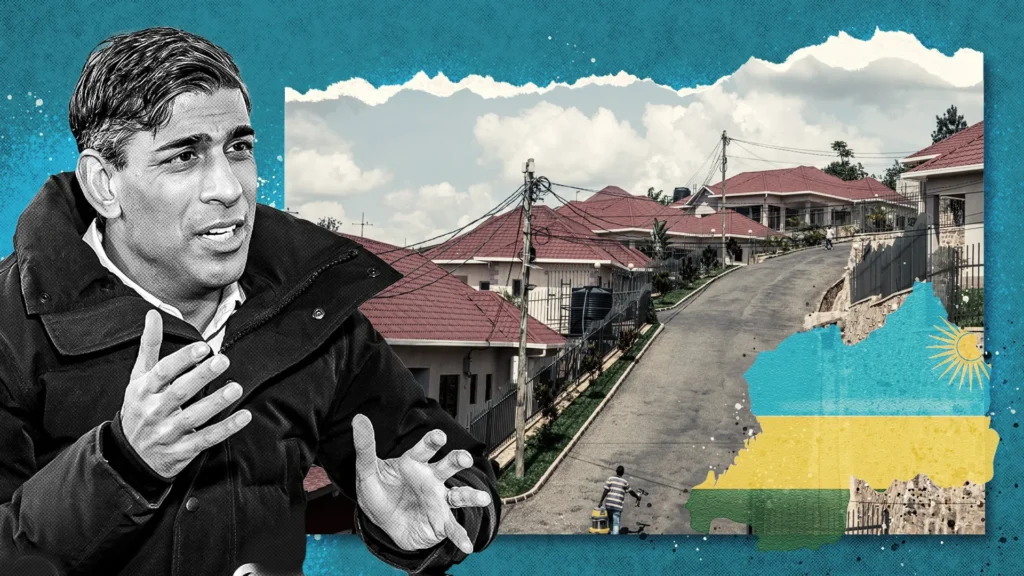
The insider said that Border Security Command, which is still being set up, was partly a “holding pen for people who didn’t have anything to do anymore because they got rid of the Rwanda policy”. “Nobody quite knows how it’s going to work,” they added.
They said that civil servants had so far been “underwhelmed” by Labour’s approach to tackling small boats, although changes to allow the processing of asylum claims that were previously held up by the Rwanda scheme were welcome.
‘Cynicism’ over Border Security Command
The Government has announced £150m funding for its new Border Security Command, but the official said there was “cynicism” about whether it will be more effective than two previous units created by the Tories.
This is not the first time there has been disagreements been Home Office officials and ministers over asylum policy. In March 2023 the then Home Secretary Suella Braverman appeared to blame civil servants for being part of “an activist blob” that was blocking her efforts to tackle the Channel small boats crisis.
But the current criticisms are not just coming from within the Home Office. A former senior Government official with close knowledge of the asylum system has told i that Labour’s plans are “pretty underwhelming”, warning that action against people smuggling had long been hampered by under-investment in Border Force and the National Crime Agency.
“This ‘smash the gangs’ thing seems to be the only show in town, which I think is disappointing,” he said.
“Surely when you’re looking at the problem, one of the things you’re looking at is why people are coming. If you don’t know what the reason is you can’t address it. Blaming the gangs might be answering the wrong question.”
Donald Trump’s electoral success on an anti-illegal immigration ticket in the US has only added to the impetus among Western governments to be seen to be tackling the issue.

On Thursday Starmer said he had put the fight against “these vile people smuggling networks” at the centre of his talks with other national leaders at the European Political Community summit in Hungary.
But Home Office civil servants are sceptical about whether this will be enough on its own. The first official told i that the legal requirement for asylum to be claimed in person on British soil, and the fact there is no visa for people to travel to the UK for that purpose, was driving refugees into smugglers’ hands.
“If you want to come to the UK to claim asylum, how else are you going to do it?” they said. “The way asylum is regulated forces them to use smugglers.
“The smugglers have built a complex network because there is demand for that, and such demand is generated by the rules the Home Office put in place. Neither deterrence nor enforcement will tackle the issue for that reason.”
No plans for safe routes
Most small boat migrants who arrive in the UK have been granted asylum. In the year to June, 99 per cent made claims, and almost three-quarters of those decided since 2018 have been successful.
Afghans, Iranians and Syrians are among the most common nationalities currently making the journey across the channel, but no plans for new safe and legal routes for refugees to reach the UK are currently being developed by the Government, i understands.
The Home Office insider said the Prime Minister’s comparison of smuggling and terrorism seemed “confused”, and that the unique powers developed under terrorism laws were designed for ideologically motivated threats.
“When it comes to terrorism the police have draconian powers, and rightfully so, given the danger they represent to the community,” they said. “But the smugglers are after money … they are criminal gangs without political intent.”
The last significant success in combatting illegal migration for a British Government came when the Conservatives – who failed to get their Rwanda scheme off the ground – saw a 93 per cent drop in the number of Albanians arriving on small boats between 2022 and 2023.
The reduction came after the UK increased removals through a new agreement with Tirana. But it did not apply to asylum seekers with live claims and cannot be replicated for the countries currently dominating irregular migration which include Afghanistan, Iran, Sudan, Eritrea and Syria.
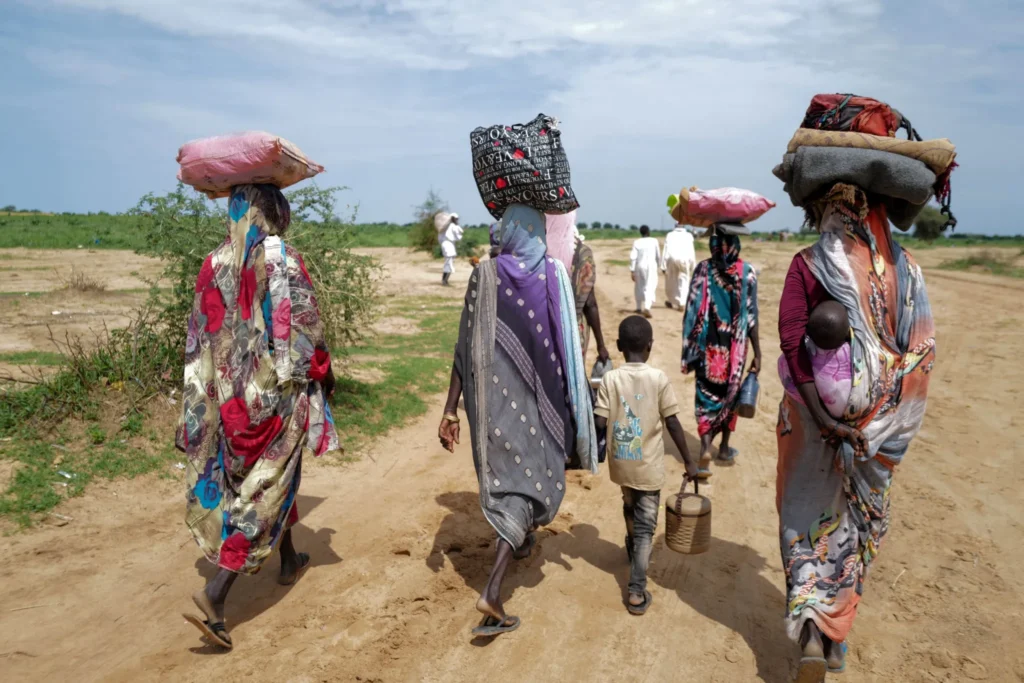
This is because it would break the Refugee Convention to deport people without considering their claims and deals can’t be done to send people back to countries which are warzones or run by repressive governments.
Experts have told i that international academic research suggests that using criminal enforcement against smugglers and their resources, as Labour is proposing, can hamper individual illegal migration routes, but can often have “unintended consequences” such as causing more dangerous methods or alternative routes to be used.
Enforcement raises risk but fails to cut crossings
Enforcement action already taking place against small boat people smugglers is failing to reduce the number of Channel crossings, but is making them more dangerous according to a French charity.
Célestin Pichaud, of French charity Utopia 56, said there were still between 1,600 and 2,000 people waiting to board boats on the northern French coast, despite increasing police enforcement on beaches and action to reduce the supply of dinghies.
He told i that the UK-funded “repressive tactics” being used by French authorities, including camp evictions and beach surveillance operations, were not reducing the number of people attempting crossings.
“This year, more than 31,000 have crossed – that’s more than in 2023, and it’s just the beginning of November,” Mr Pichaud said.
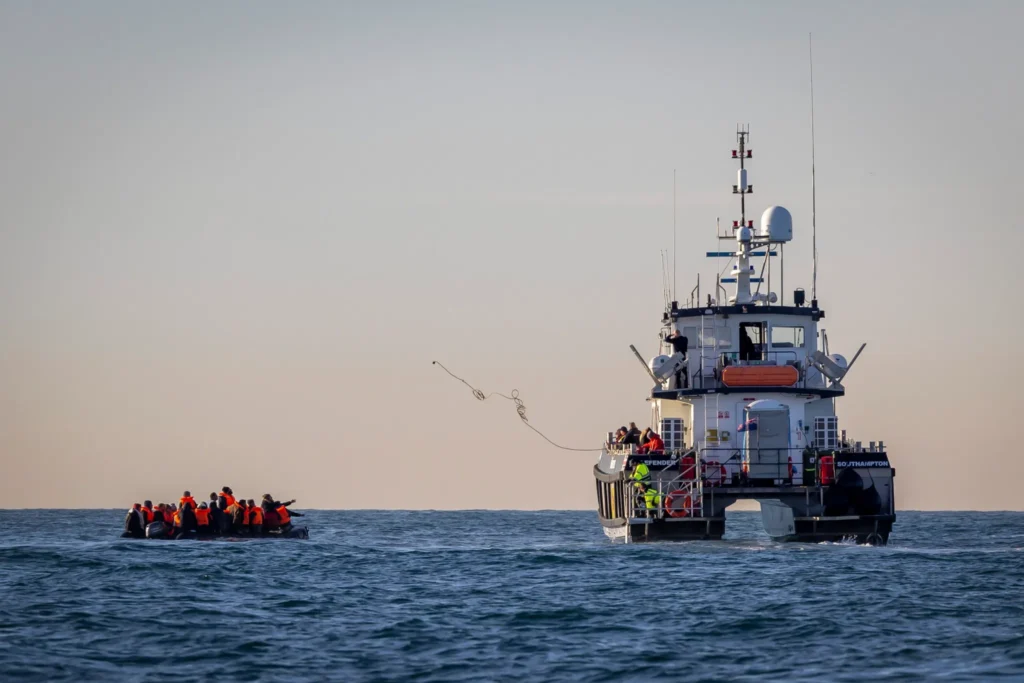
“For years, the Government has been giving the solution as stopping the activity of the smugglers and developing repressive policies, but they have already tried that and we always say it will not work.
“The same numbers of people are trying to cross – the only consequence is they are taking more risks. People do not risk their lives if they have another solution.”
Utopia 56 and other charities monitoring activity on the French coast have linked increasing enforcement operations and efforts to reduce the supply of inflatable dinghies to rising deaths in the Channel.
At least 72 people are known to have died attempting Channel crossings this year, including 64 at sea – an all-time record.
While the majority are believed to have drowned, cases of people being crushed and suffocating inside boats have started in the past year because of increasing overloading.
Mr Pichaud said dinghies were increasingly overcrowded and being launched from areas of the French coast “further and further away” from England to avoid patrols, while “chaotic” attempts to board boats at sea while fleeing from police had triggered several incidents.
“There are fewer boats on the French coast but the same number of people crossing,” he added. “This [policy] will have harmful consequences, there will be more deaths.”
The French interior minister, Bruno Retailleau, appeared to acknowledge the link following a meeting with Home Secretary Yvette Cooper in October.
“Ms Cooper praised the heroic commitment of law enforcement to prevent crossings to the United Kingdom,” he wrote on Twitter/X.
“We shared the observation that this effectiveness had harmful consequences, with an increase in deaths and violence between migrants and against law enforcement.”
More than 5,000 people crossed the Channel in small boats in October, making it the busiest month of the year so far for crossings. And by Thursday, more than 1,300 people arrived over the first seven days in November.
Cooper said this week that high numbers of crossings in October were linked to unusually calm sea conditions but that “we’ve actually got to go after the criminal gangs at the heart of this, rather than it simply being dependent on the weather”.
A Home Office spokesperson said: “We all want to end dangerous small boat crossings, which threaten lives and undermine our border security.
“Our new Border Security Command will strengthen our global partnerships and enhance our efforts to investigate, arrest, and prosecute these evil criminals. We will stop at nothing to dismantle their business models and bring them to justice.”
How tackling lorry route led to the small boats crisis
Taking on criminal gangs operating illegal migration can have “unintended consequences” and simply shift their focus to another route experts, research and recent British history suggests.
Today’s rise in small boat Channel crossings has been partly attributed to the Conservative government’s successful efforts to stop migrants boarding lorries destined for the UK in northern France.
A report published this year by a French government spending watchdog said increased security around ferry ports and the Channel Tunnel had “led to a shift in irregular migration flows towards the maritime vector”.
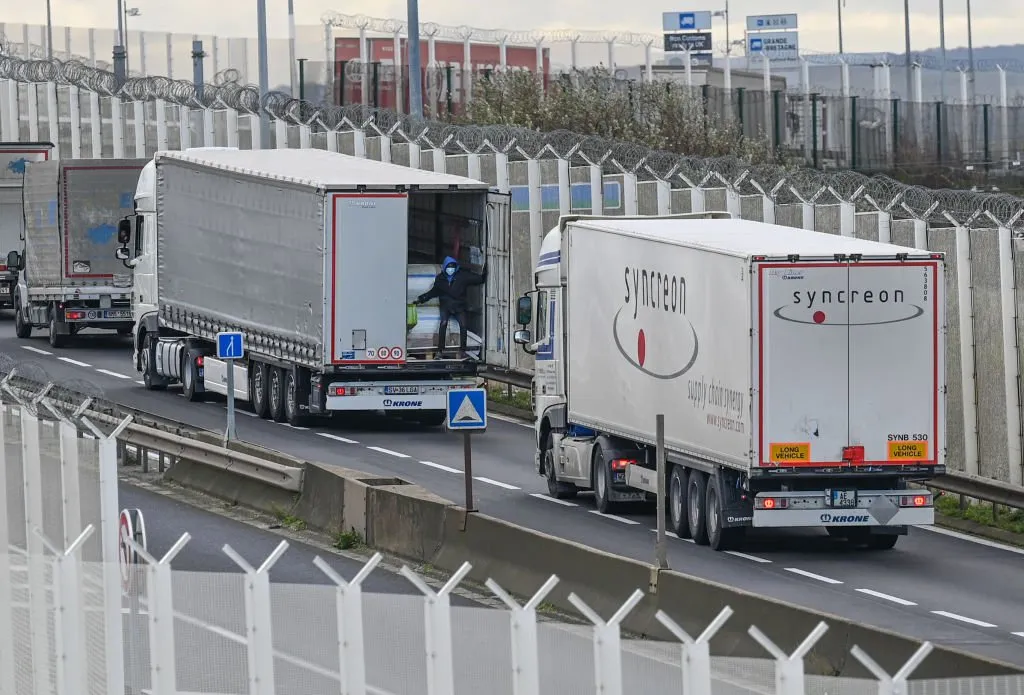
The number of migrants detected at the Channel Tunnel fell from over 62,000 in 2015 to just 20 in 2022, while small boat arrivals rocketed from zero to 45,700 in the same period.
Dr Peter Walsh, a senior researcher at the University of Oxford’s Migration Observatory, said efforts to stop migrants boarding lorries “had the unintended effect of supercharging small boats”.
He warned that there was also a “lack of evidence” on the long-term effects of prosecuting more people smugglers, adding: “Smuggling networks are quite decentralised, the people most directly involved in smuggling operations work in small groups, you can smash one of those and another pops up in its place.”
Marley Morris, associate director for migration at the Institute for Public Policy Research, said that although the Government’s proposals for Border Security Command were “perfectly sensible, there are other things that need to be done in tandem to have the most effective response”.
“If you tighten up security to make it harder for people smugglers or individuals to make crossings, then there is normally some evidence of a deterrent effect but there’s also big evidence of displacement as well,” he added.
“It won’t necessarily stop people from making the journey because we know that these networks are very adaptable, they’re very flexible, very fragmented, so you can easily imagine new actors stepping in to replace those who are caught to continue the operation.
“That’s why you need to look at the demand side, and what the alternatives are for people making these dangerous journeys. In order to have an effective response you need to go beyond enforcement.”

